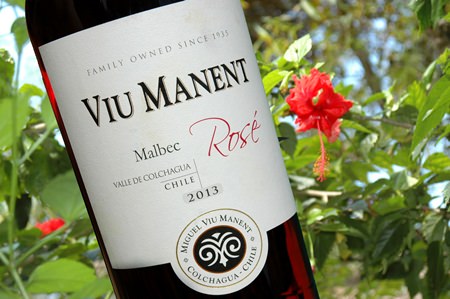If you have only the vaguest interest in wine, you’ve probably come across the name Robert M. Parker Jr. or at least have heard the expression “Parker Points”. Robert Parker is generally regarded at the most influential wine critic in the world today.
In the late 1970s he started publishing a direct-mail newsletter, which became known as The Wine Advocate and now has thousands of subscribers not only in the USA, but also in many other countries. To wine consumers, he’s probably best known for his 100-point scale of rating wines, which is why you sometimes see little labels attached to bottles with the words “95 Parker Points” or something similar. Wine merchants know that high Parker Points sell wine.

Robert Parker achieved world-wide attention when he announced that the 1982 Bordeaux vintage was “superb” – contrary to the opinions of many other experts who thought it was a bit of a wash-out. Parker evidently tastes 10,000 wines a year which on average is about 27 wines each day. He claims to remember every wine he’s tasted over the past thirty-two years. Now if you ask me, that’s quite a feat because sometimes I can’t remember what I tasted last month let alone thirty years ago. Needless to say, with his extraordinary influence, Parker has become a somewhat controversial figure and his 100-point scale has been criticised. He is known to prefer certain styles of wine and tends to award them higher points than those less favoured. Parker stresses that consumers should read his comments on a wine rather than trust the points alone. However, several writers have claimed that winemakers are producing wines that are more likely to meet with Robert Parker’s approval and therefore score higher points. Make of that what you will.
Anyway, I’m telling you this because the top foil of these Chilean wines bears his name and a quotation from a 2012 edition of The Wine Advocate which says, “Viu Manent is the very model of consistency as all of its wines can be recommended and several offer exceptional value.” And I have to admit that for once, I agree with him. Viu Manent was founded in 1935 when Catalan immigrant Miguel Viu-García and his two sons Agustín and Miguel Viu-Manent founded Bodegas Viu in Santiago de Chile. The company originally sold cheap and cheerful wine on the local market but in 1966 it acquired the splendid Hacienda San Carlos de Cunaco in Colchagua, a traditional estate with 150 hectares of vineyards planted with exceptional vines, as well as a winery and a manor house. Since then, Viu Manent wines have gone from strength to strength and have won prestigious awards all over the world. Both these wines have very welcome screw closures and they come in attractive tapered bottles. But more importantly, they hail from the Colchagua Valley in Central Chile, one of South America’s most promising wine regions and the home to some of Chile’s finest reds.
Viu Manent Malbec Rosé 2013, Chile (Bt. 490 @ Friendship)
These days, the Malbec grape is usually associated with Argentina, and its enormous success there has encouraged some wineries in neighbouring Chile to try their hand at this popular variety. From grapes grown in San Carlos Estate, this wine is a very elegant pink with flecks of purple, produced presumably by pigments in the dark skin of the grapes. Rosé wines of course are generally simple, gluggable things but the aroma of this one is surprisingly sophisticated with delicate floral smells of red fruits, berries and rose petals. Give it a taste and you’ll notice straightaway that this is a cut above many other rosés. It’s pretty well bone-dry with an attractive tang of bright acidity, exceptionally light in body and a crisp, zingy finish. There’s red apple and blueberry on the palate and the wine has a pleasing “lean and clean” feel, making it taste refreshing and lively.
As you probably know, it’s always best to serve rosés quite cold – straight out of the fridge. At just 12% alcohol, this wine would make a lovely apéritif although I must say that I’d reserve it for those who would appreciate the quality and elegant balance. Incidentally, one of the joys of rosé wines is that they’re versatile as food partners, and they go well with light dishes like pasta or omelettes, or even simple things like burgers and salad.
Viu Manent Cabernet Sauvignon Estate Collection Reserva 2012 (red), Chile (Bt. 490 @ Friendship)
This wine couldn’t be more different. It’s a very dark ruby red with hints of violet. There’s a superb rich and complex aroma of red and black fruit, brambles, cherries and a dash of spicy oak. There’s even a suggestion of mint which is not as surprising as it sounds, because quality Cabernet Sauvignons often come with a faint minty aroma in the background. And by the way, the Estate Collection is a range of seven award-winning wines “that stand out for their maximum fruit expression; full of colour, aromas and flavours”, or so it says on the company’s website.
It’s very dry and medium-to-full bodied and there’s plenty of rich, black fruit on the palate. You’ll probably notice the soft but firm tannins which carry through on the long dry finish. It’s really quite a “big” wine and would probably be at its best with food. With a hefty 13.5% dollop of alcohol, this wine would probably work a treat with red meats in rich sauces or other hearty fare. If you enjoy big, rich fruity reds, I am sure you’ll find this wine to your taste. You could probably keep this vintage for another couple of years, assuming you’ve got somewhere cool to store it.
The other day I was reading something in a wine magazine in which the writer claimed that he (or possibly she, for I have forgotten who wrote it) didn’t care for the expression “food wine”. I beg to disagree, for some wines are light enough and interesting enough to go it alone without the distraction of food. On the other hand, many red wines and especially Italian wines almost cry out for food to go with them.
Now I have to admit that I have absolutely no idea why this is, because my knowledge of scientific matters is somewhat fragile. It was always thus. When I was a student at high school, I was once summoned to the Headmaster’s Office which in itself was usually an omen of unsettling events to unfold. Fixing me with his icy glare reserved for moments of high drama, he announced that I had brought distinction to the school by achieving the lowest mark in physics ever recorded. I cannot recall whether I said anything in response, but his devastating announcement brought my dreams of a dazzling career in cosmology and quantum physics to an abrupt end.




